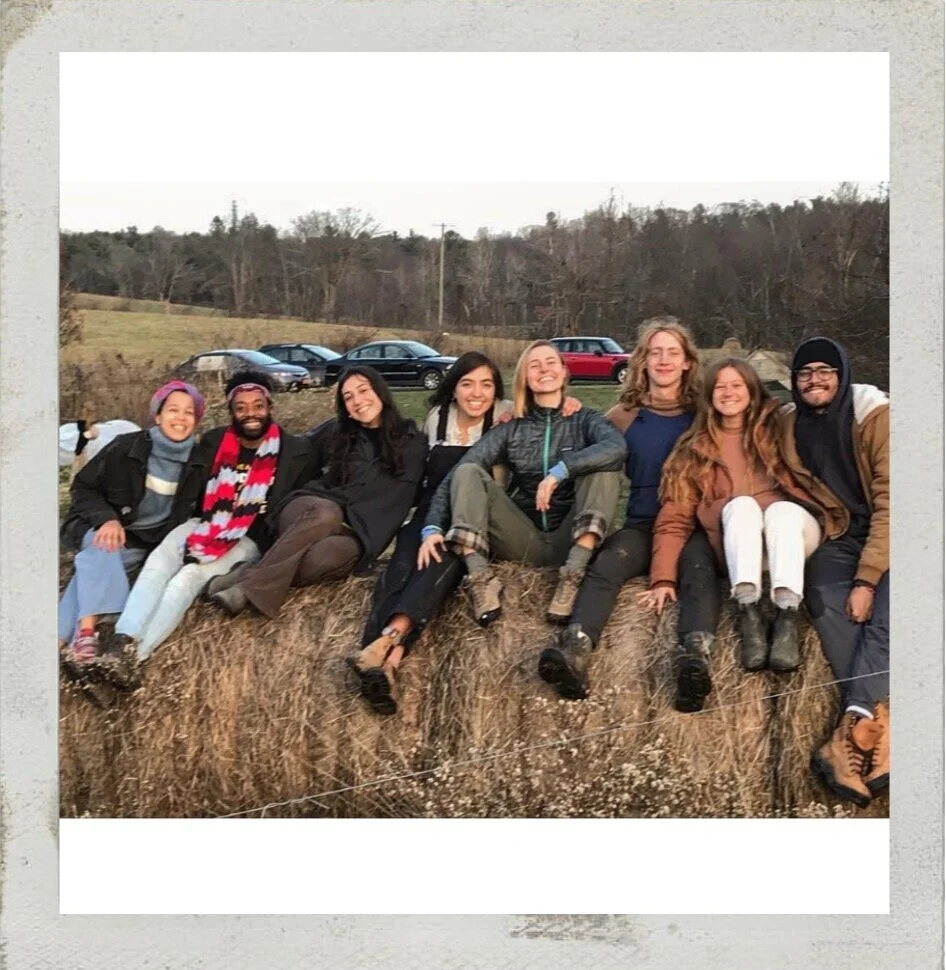social soil
every time i think about my housemates— the 7 others who i spent this past year with at place corps— my whole body fills with light. i cant help but smile and place my hand over the pulsing warmth coming from my chest. this is real, i-can’t-contain-it kind of love. the kind of love that makes 3 hour house meetings and digging trenches in the rain totally worth it. the social soil of the place corps house is like the most nutrient dense humus you could imagine… rich because it’s slow in growth, built on interdependent relationships, and all about process.
this year has woken me up to a new understanding of relationships— relationships that not only fill me with love, but relationships that actually keep me alive. what would it be like if we all really knew the people who provide us with food, energy, a working house, and running water?
my housemates and i realized early on that we were not self-sufficient or off the grid in this way, nor did we want to be so. with the guidance of many of the place corps educators, we realized we wanted to build a web of bioregional relationships— a larger social soil— that enabled us to do and get what we needed while supporting others in return. no need to shop on amazon when the folks in our community can lend, sell, or share what we need. this is the practice of community sovereignty.
having these relationships offers an exhale. yes, there’s so many ecological benefits to sourcing locally, but there’s also deep connection and empowerment and ease that arises in this process. a knowing that this is what makes us strong and resilient and alive and prepared.
the learnings that led my housemates and I to our web of relationships are many: three weeks of coursework on regenerative economics with Faith from Letterbox Farm Collective, ongoing social permaculture workshops with Abrah from Regenerate Change, a daylong training on uprooting racism with Soul Fire Farm, deep dives into shared leadership and the Just Transition with The Good Work Institute, months of practicing interpersonal communication with our educator Maya, and conversations with so many others who are engaged members of regional economies.
from all of these experiences, and especially from my experience in 10 months of communal governance and a few months of part-time research on shared leadership with The Good Work Institute, i’ve learned that the web of these relationships is truly impactful and alive and sovereign and just when it is really a web— decentralized, nonhierarchical, and owned by no one.
in so many ways, i see hierarchy and private ownership as inextricably connected to legacies of white supremacy, colonialism, patriarchy… you know the rest. how can a piece of Earth be owned by anyone? a river? my body?
nonconsensual hierarchy and the privatization of the commons exist to uphold these unjust legacies… and it takes so much collective visioning and unlearning to imagine different ways of being, working, living, and sharing. it’s also going to take a mass redistribution of resources, especially from folks benefitting from power, wealth, and whiteness.
i often hear a narrative that, in order to live in these different ways, humans must create new economies, new practices, and new ways of moving through the world. but i don’t really see these alternatives as new. Earth teaches us that everything exists in cycle and repetition. what if we looked to the teachings of our ancestors and brought forth those ways of being into our lives today? what if the new economy is just an iterated version an ancient one?
healthy soil exists because old, dead matter has been alchemized into food for others. healthy soil exists because of webs of interdependent relationships. it’s easy to forget that i, too, (that we, too) are all part of this web. let soil be our collective reminder.
my place corps social soil— the 8 housemates!

